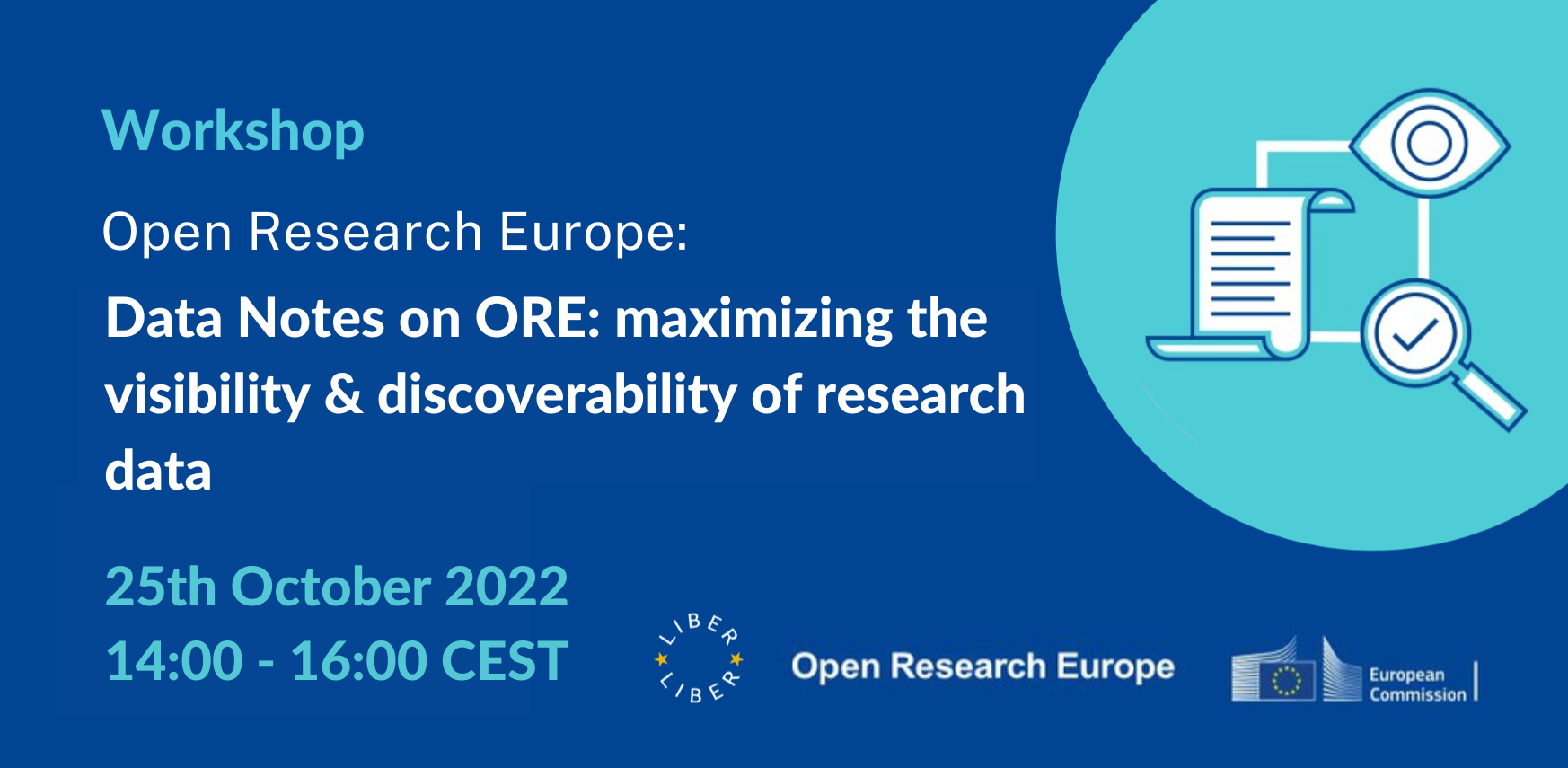
Data Notes on Open Research Europe (ORE): Maximizing the Visibility & Discoverability of Research Data
Open Research Europe (ORE) is a publishing platform for all research stemming from Horizon 2020, Horizon Europe and Euratom funding across all subject areas. In this webinar, participants will be familiarised with the Data Notes of the ORE platform. Data Notes is a specific article type within the platform, which allows researchers to publish and describe their scientific datasets. The main benefit of this is providing credit to data producers with a citable, peer-reviewed publication.
Registration
Are you interested in learning more about Data Notes and how it can benefit the researchers at your library? Join this webinar on Tuesday 25 October, 14:00 CEST. Registration now open.
Who is this event for?
Research librarians that support/train researchers especially with Data Management, researchers
Programme
14:00 – 14:05 Welcome to the participants
14:05 – 14:15 Introduction to the concept of Data Journals – Mari-Elisa Kuusniemi (chair of LIBER’s Research Data Management Working Group)
Data journals are scholarly journals that publish data articles. Data articles are focusing specifically on the dataset and provide details such as the context of the data collection, the choice of software environment and data processing decisions including file formats. Data journals provide a means to credit the data creators through citation and peer-review.
14:15 – 14:55 Maximize the potential of your research data with Data Notes on Open Research Europe – Sam Hall (Content Acquisition Editor, F1000)
Effective data sharing extends beyond simply depositing your dataset in a repository. In this session Sam will demonstrate how through publishing a Data Note with Open Research Europe your data can be shared in a discoverable, usable, and reproducible way.
14:55 – 15:35 Data Papers in the context of Open Research, with a focus on the Humanities – Barbara McGillivray (Lecturer in digital humanities and cultural computation, King’s College London)
With the increasing adoption of Open Knowledge principles in research and the growing availability of born-digital and digital collections, as well as data-intensive methods, new questions arise on the best practices for open research in the humanities. Data Publication is acquiring increasing visibility and interest, also thanks to the growing popularity of data journals, publishing venues devoted to peer-reviewed publications describing datasets and crediting their creators (data papers). In this talk I will present my experience of leading the Journal of Open Humanities Data, a data journals dedicated to humanities research and its role in supporting the community of Open Humanities researchers.
15:35 – 16:00 Question and answer session, round up.